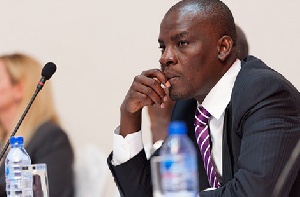A 680-kilometre Fibre Optic Broadband Backbone Infrastructure project stretching from Ho in the Volta Region to Bawku in the Upper-East Region has commenced with a groundbreaking ceremony in Ho on Friday.
The project, known as the Eastern Corridor Fibre Optic Infrastructure, will also branch off from Yendi into Tamale to complete the backbone loop of the country, Mr. Haruna Iddrisu, Minister of Communication, said at the ceremony.
The 38 million euros project, to be undertaken by Alcatel-Lucent of Denmark, covering 27 municipal and district assemblies is billed to be completed in December 2013.
Mr. Iddrisu said an independent engineer would be engaged to effectively manage the risks associated with the project delivery and mitigate them in the mutual interest of both parties in line with international best practice.
He said: “The fibre infrastructure we are going to develop will be linked to the network already developed in other parts of the country to make it possible for the provision of network access to all districts to facilitate the delivery of government services efficiently to the citizens.
"It is expected that with high-speed connectivity available in all corners of the country, especially the rural areas, private businesses will take advantage to use the facility to operate their businesses and new avenues also opened to support entrepreneurial development to create jobs.”
Mr. Iddrisu gave the assurance that the technology to be applied in laying the cables would ensure that there would be no visible excavations and no destruction to streets or roads.
He asked for the co-operation of all district and municipal assemblies and communities along the way to support the project.
Answering questions at a news briefing, officials from the National Information and Technology Agency (NITA) and Alcatel-Lucent, said because the technology to be applied would carry out excavations deep down the surface of the ground there would be minimal and isolated surface excavations.
This would rule out any negative environmental effects from the project.
Regarding the lifespan of the project, they said a well thought-out financing module would go into its management to generate enough revenue to sustain itself and expand.
They also allayed fears that the project might not be continued should there be a change of government.
This is because Information Communication Technology ( ICT) is an international phenomenon which no government could ill-afford to truncate because it is the heart that drives the global economy.
They said earlier ICT projects started by other governments were adopted by successive governments because of their universal importance.
Business News of Saturday, 29 September 2012
Source: GNA

















